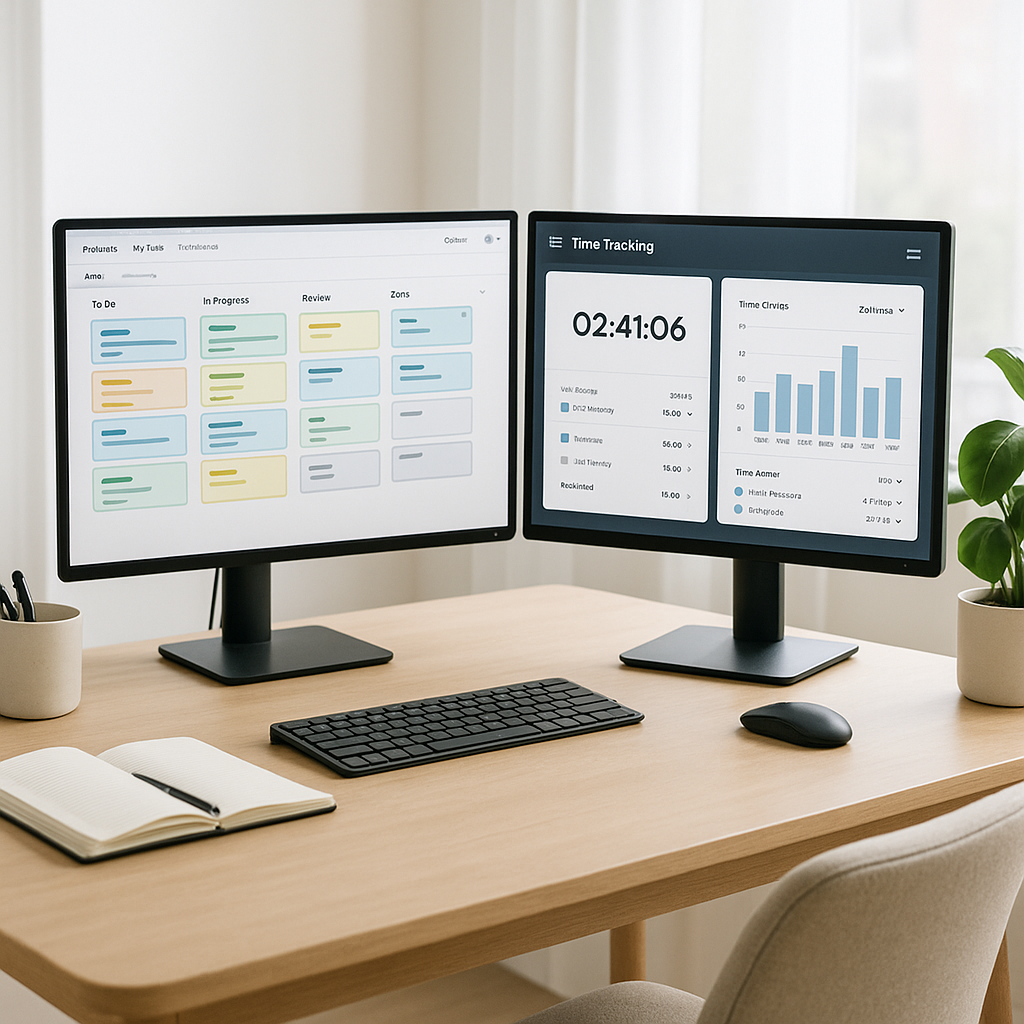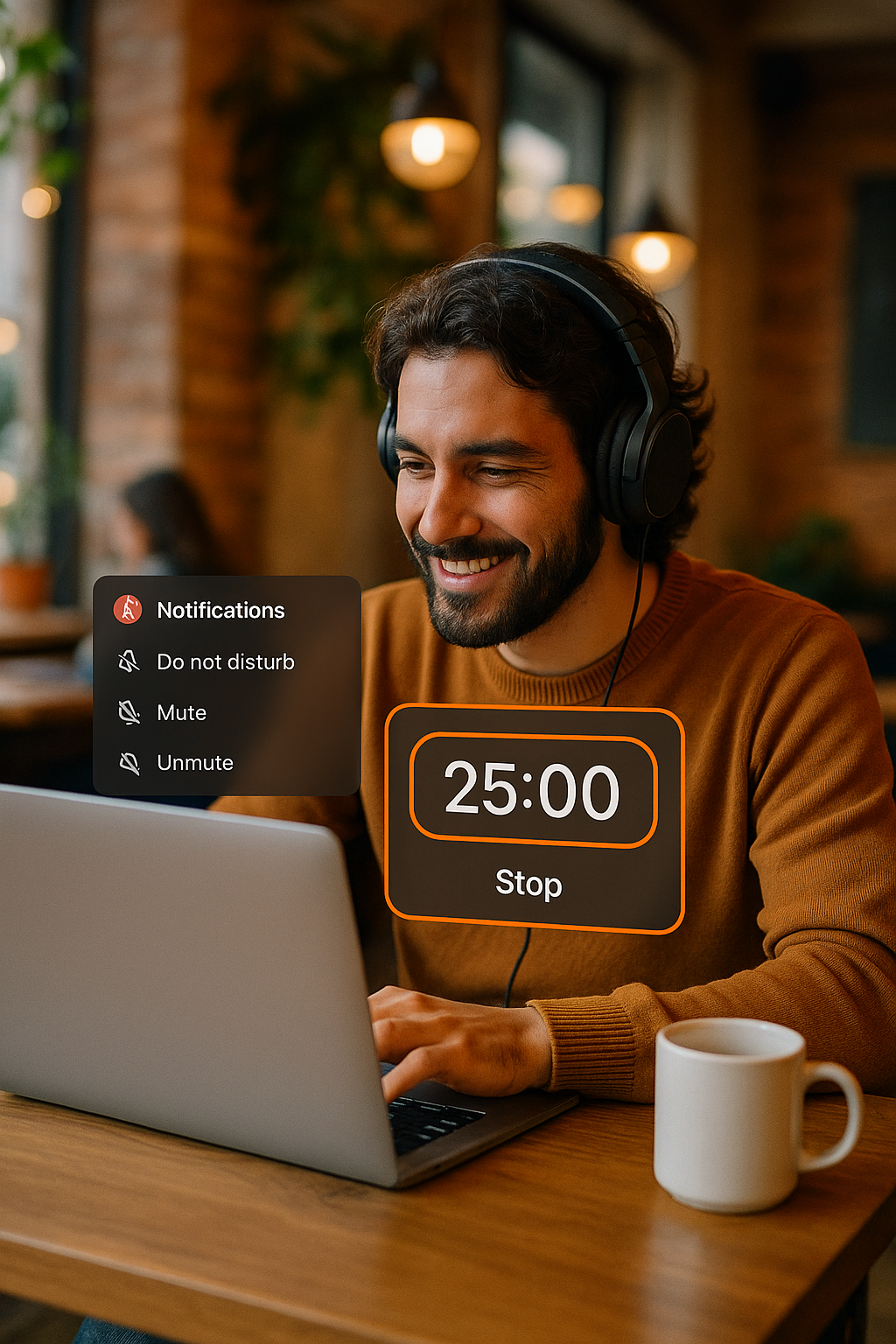Creating a Dedicated Workspace
One of the most fundamental remote work hacks is establishing a dedicated workspace that minimizes distractions and signals to your brain that it’s time to focus. Whether it’s a corner of your living room or a separate room entirely, an organized and ergonomically optimized environment fosters mental clarity and efficiency.
Invest in comfortable seating, good lighting, and necessary hardware such as dual monitors. Personal touches like a plant or artwork can improve mood and create a calming atmosphere without cluttering the desk.

Time Management with Pomodoro Technique
Focused work intervals are key to maintaining productivity over lengthy remote days. The Pomodoro technique breaks work into 25-minute segments followed by short breaks, promoting sustained concentration and preventing burnout. This time-tested method has gained renewed importance in 2025 as distractions increase in home environments.
Use dedicated Pomodoro apps or timers to keep track, and pair technique adherence with task prioritization to optimize workflow. Employees report increased motivation and reduced fatigue when applying this method consistently.

“Implementing structured intervals of focused work and rest leads to noticeably higher productivity and less end-of-day exhaustion.”
Leveraging AI-Driven Automation Tools
The integration of AI-powered tools in project management and scheduling is transforming remote work productivity. Automation eliminates redundant tasks such as calendar coordination, status updates, and reminders, allowing professionals to concentrate on high-value activities.
Platforms like FlexOffice provide SaaS solutions that streamline task delegation, track progress in real-time, and intelligently suggest schedule optimizations. This reduces friction in team workflows and ensures deadlines are met without constant manual intervention.
Adopting AI-driven automation tools in 2025 is no longer optional but a staple for remote teams seeking efficiency and accuracy.
Clear Communication and Goal-Setting
Effective communication routines are crucial to remote work success. Establishing transparent channels for updates, feedback, and brainstorming prevents misunderstandings and keeps teams aligned.
Set SMART (Specific, Measurable, Achievable, Relevant, Time-bound) goals collaboratively to drive motivation and performance measurement. Frequent check-ins and concise written summaries ensure everyone shares the same understanding despite physical separation.
“Clear communication combined with goal transparency enhances trust and drives engagement in remote teams.”
Promoting Well-being and Bridging Collaboration Gaps
Remote workers face unique challenges including isolation, burnout, and limited informal collaboration. Proactively integrating well-being practices such as regular physical movement, mental health breaks, and social interaction opportunities boosts resilience.
Managers should encourage open dialogue about workload and stress, and facilitate virtual team-building activities to recreate office camaraderie. Implementing flexibility in work schedules addresses diverse personal needs, supporting both productivity and morale.
Research-Backed Insights on Hybrid Work Models
Hybrid work arrangements—combining remote and in-office days—are becoming dominant. Studies show these models enhance productivity by balancing focused home work with collaborative capabilities on site.
Digital collaboration platforms are essential enablers of hybrid success, offering centralized hubs for document sharing, video conferencing, and task tracking. Teams that effectively leverage these tools report higher engagement levels and clearer workflows.
